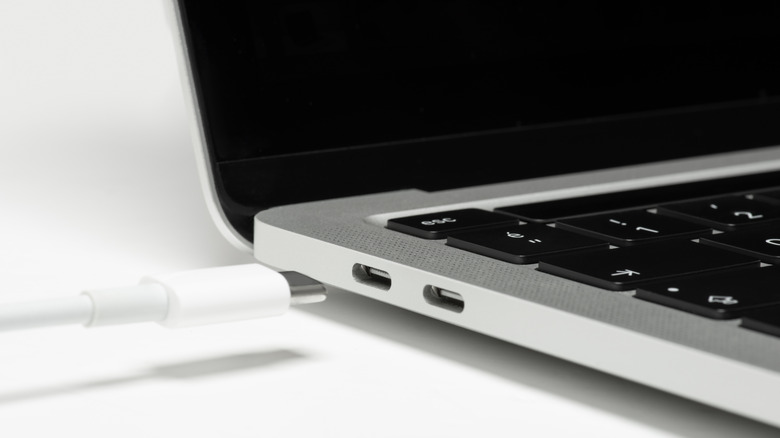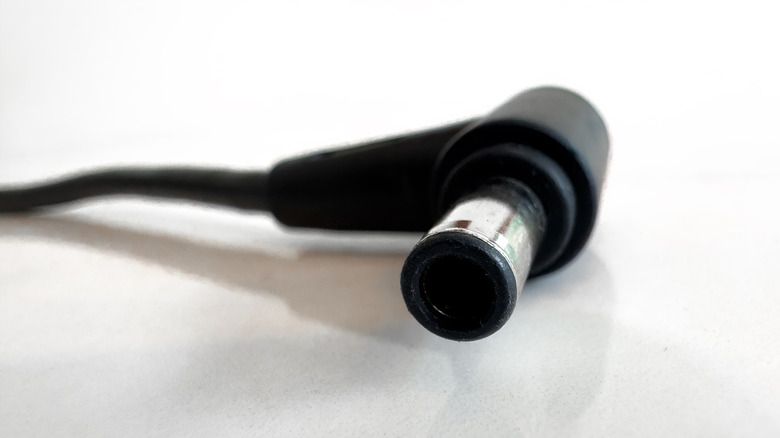Can You Use A 100W Charger For A 65W Laptop?
Laptops come with specific chargers designed to match the battery and overall power requirements. However, you may sometimes need to switch to a different charger in the absence of your regular charger or when you want to replace a damaged one. In such cases, can you switch to a charger with different wattage? More importantly, can it cause damage in the long run?
Laptop manufacturers today offer a wide variety of specifications and designs, tailored for different use cases. However, they need to make a key trade-off as more power is added — more capable laptops tend to run out of battery faster. The charging situation in the laptop world is so fragmented that you might need to be constantly plugged into a charger to compensate for sudden battery drops, particularly with older laptops or power-hungry gaming machines. The presence of proprietary charging ports and a lack of standardization further complicates this issue.
In contrast, it is much easier to swap chargers in smartphones due to the rapid adoption of USB Type-C. While modern laptops have been adopting the USB type-C charging standard, many laptops still use proprietary ports, making it harder to swap chargers.
Type-C laptops are more compatible with different chargers
While the Type-C cable might look like a facelifted version of its predecessor, the new USB standard packs in many more features. Many laptops sporting a Type-C charging port (barring a few first-generation Type-C laptops that did not completely follow Type-C standards) use USB PD (Power Delivery) to deliver power to your laptop, while other laptops might have a Type-C port only for data transfer.
The USB PD technology brings numerous benefits, such as faster charging speeds, but the most important one is universal compatibility. So, does that mean you can use a higher-wattage charger on your laptop without damaging any components?
It turns out that the USB PD technology is designed to safely deliver power even if the wattage is higher than usual. For this, the device and the charger constantly negotiate the power required to charge the device and ensure the fastest charging speeds without overloading any component in the process.
So, even if you plug a 100W charger into a laptop rated for 65W charging using a USB type-C port, your laptop will automatically draw power at 65W. The rated wattage is simply the maximum power that the charger can deliver. This also means that plugging in a higher-wattage charger won't charge your laptop faster unless it supports fast charging.
Universal compatibility also allows using a lower-wattage charger, but the laptop takes longer to charge in such a case.
The case of proprietary chargers
While type-C is becoming a standard, it has its limitations, especially when delivering power at higher wattages (USB PD 3.1 can deliver power at a maximum wattage of 240W). For this reason, power-hungry laptops, such as many gaming laptops, still come with proprietary chargers to support higher power delivery.
If you have a laptop with a proprietary port, such as a barrel or a rectangle connector, you might need to check for a few additional factors besides just a matching charger that fits your port. While, in principle, even a laptop with a proprietary charging port should only draw the power it needs from a higher-wattage charger, these chargers introduce a few additional variables, such as voltage rating and polarity.
While higher wattage is fine, using a charger with a higher voltage rating can severely damage your laptop. Check the charger label to verify if the rated voltage matches the voltage on your regular charger.
Moreover, polarity is another factor in determining if you can use a charger in the case of barrel connectors. In simple terms, the polarity indicates what side of the charger has what type of charge (negative or positive). You can only use chargers with similar polarity on your laptop. While brands usually remain consistent with polarity with their chargers, you should check the polarity on the charger label when using a different laptop's charger due to the lack of standardization in proprietary chargers.
In conclusion, yes, you can use a 100W USB-C charger for your 65W laptop, as long as the manufacturer follows the modern USB Type-C standards. However, in the case of proprietary chargers, carefully check the charging requirements of your laptop before going for a higher or lower-watt charger.


